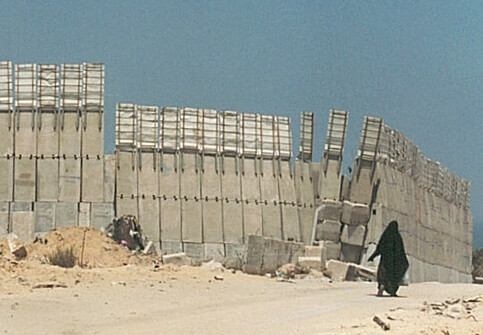8 March 2004

Palestinian woman walking to Muwasi, a part of Khan Yunis that extends along the coast for 12 kilometers and is at most a kilometer wide. The 12,000 Palestinian residents of Al Muwasi are completely surrounded by the Gush Qatif settlement block making them the residents of a ‘yellow zone’ under Israeli military occupation (Photo: UCP, 2003)
The living conditions of Palestinian women - including their access to health, education, food and employment - have been deeply affected by movement restrictions, military incursions and house demolitions, particularly in Rafah, where almost 10,000 Palestinians including many women, have been made homeless.
“Today, as women all over the world celebrate international women’s day, Palestinian women continue to endure such hardship that their basic humanitarian needs are no longer guaranteed and protected,” says David S. Bassiouni, Special Representative, UNICEF in the West Bank and Gaza.
The ongoing conflict has lead to the following:
This situation has brought seven UN institutions in the West Bank and Gaza* together in expressing their concern. These UN institutions believe that both parties of the conflict have obligations and responsibilities to improve the situation of Palestinian women. Accordingly, they call upon:
The Israeli authorities to provide safe and unconditional access to health services, education, employment, food and other basic supplies.
The Palestinian Authority to continuously improve the quality of all basic services.
The international community to ensure that all parties abide by international humanitarian law regarding the protection of civilians, including women.
* United Nations Relief and Works Agency (UNRWA), United Nations Population Fund (UNFPA), United Nations Children’s Fund (UNICEF), United Nations Office for the Coordination of Humanitarian Affairs (OCHA), World Health Organization (WHO), World Food Program (WFP) and United Nations Development Programme (UNDP).
Related Links